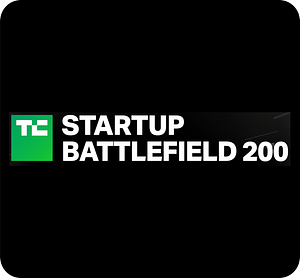Retail and BankingDiscovering the Financial Impact of a Retail Loyalty Program Objective Determine the actual financial impact of the retailer's loyalty program by comparing customer spending patterns before and after program enrolment.Overview Using Omnisient, the...

What is data monetization?
Data for many companies has long been a liability due to the costs and risks associated with storing it, managing it, and protecting it. However, for others it’s quickly becoming a tremendous source of revenue.
First of all, what is data monetization? Data monetization is use of data to reduce costs or to generate revenue.
In this post, I focus on the use of data to generate revenue.
The top 3 challenges to data monetization
I speak to many large organisations regularly that want to monetize their data but are paralyzed by challenges and are unsure how to overcome them. Below are the 3 most common challenges I hear being faced by organizations.
Here are 3 of the most common challenges I hear that lead to Data Monetization paralysis:
- Ensuring data security and privacy: What are the risks from a regulatory and liability perspective?
- Building a solid business case: What is the value of my data and is it worth the effort and resources required to monetize it?
- Finding a secure marketplace: How do I find buyers and transact with minimal risk?
It’s clear that answering the “Risk vs. Reward” question first is a pivotal step to curing the paralysis. There is no point going on the data monetization journey if you can’t overcome the privacy or security challenges or establish that your data has value in the market place. So, how do you get started? Let’s look at overcoming the security and privacy challenge first.
How to ensure data security and privacy
Privacy-preserving data collaboration platforms are a fairly new phenomenon, but there are a few players globally that have emerged to enable Business-to-Business data sharing without the risks of compromising data security or breaching data privacy regulations.
By providing a platform that enables independent cryptography (not designed or operated by the data seller or data buyer) these independent platform providers can enable a “safe zone” or escrow-like environment for data sellers and buyers to share customer data insights without ever sharing PII (Personal Identifiable Information). This is done by de-identifying their customers’ personal information and then sharing only matchable tokens (personal information that has been transformed into an anonymous, irreversible match keys) with the other party. This means both parties can onboard anonymized but matchable data without privacy or breach risk concerns.
If the technical explanation was somewhat confusing, the simpler explanation is this: privacy-preserving data collaboration platforms that provide independent cryptography enable data sellers and data buyers to share data insights without ever sharing their customers’ personal information, so privacy of PII is maintained at all times thereby adhering to any privacy regulation.
Watch the short explainer below for a better understanding of how privacy-preserving data collaboration works.
How to build a solid business case AND find a secure marketplace for your data
Let’s look at the OLD way of data collaboration where data is at risk of misuse or breach and determination of value is a long, drawn out process:
If you manage to engage a potential buyer for your customer data, you need to drag both businesses through a hugely complex compliance and IT security process and then try to negotiate commercials before the value of your data is even apparent to the buyer. This is not only a tough ask, but usually takes data sharing parties up to 24 months or more to start sharing data (verified by a number of our own clients). In more recent times with the introduction of GDPR, POPIA or CCPA, many companies’ data collaboration initiatives have been totally thwarted after tremendous cost and resource allocation.
Let’s now look at the NEW way of data collaboration where your data is protected in a secure and neutral escrow-like data marketplace for analysis and rapid determination of value:
With the advent of Privacy-Preserving Data Collaboration platforms, a potential data buyer could access a sellers’ anonymized data in the Cloud (where they can’t remove it) and use the machine learning and AI capabilities of the platform to quickly evaluate if the seller’s data would add value to the potential buyer’s use cases.
This turns data hungry prospective buyers into a data seller’s most valuable resource by helping them to establish a rock-solid business case: a business case where all parties are clear about the value of the data and the business opportunity.
Instead of an arduous journey with one single prospect, you can use the secure data collaboration platform to enable multiple potential buyers to rapidly evaluate your data and communicate the value to you. Multiple buyers will help you establish a benchmark of perceived value.
Even if the skeptic in you says that the buyer will try and low-ball you, you need to remember that by allowing them to prove the value of your data first through analytics in the platform puts you at a great advantage. A buyer that knows the data will create significant ROI is far less likely to not be equitable especially when they are up against multiple buyers that also value the data.
Get started with Data Monetization
Omnisient has more than 60 organisations collaborating on our privacy-preserving data collaboration platform. We’ve helped businesses that have been in data monetization paralysis for years move from no buyers to multiple buyers investigating their data value in as little as 3 months. These clients all remain in full control of their data asset and of who gets access to evaluate it for commercial purposes.
Once the business case is clear, we see these clients move to monetization quickly, as the data sharing ecosystem is already in place.
This significantly accelerates their time-to-value.
Paralyzed by perceived data monetization challenges? Make the move to overcoming them and turn your data from a liability to a revenue-generating asset. Contact me about our “Data Monetization in a Box” offering. We’ve worked with some of the leading retailers and financial services institutions to bring them together to generate new sources of revenue and grow financial inclusion while respecting consumer privacy.
If you’ve got the data, we’ll help you find the value and the buyers and set you up in a secure and compliant data collaboration and monetization environment quickly and easily.

About the Author
Julian Diaz is Omnisient’s CMO. Julian is a B2B tech marketer for start-ups with over 20 years of experience marketing in USA, UK, Europe and South Africa.













